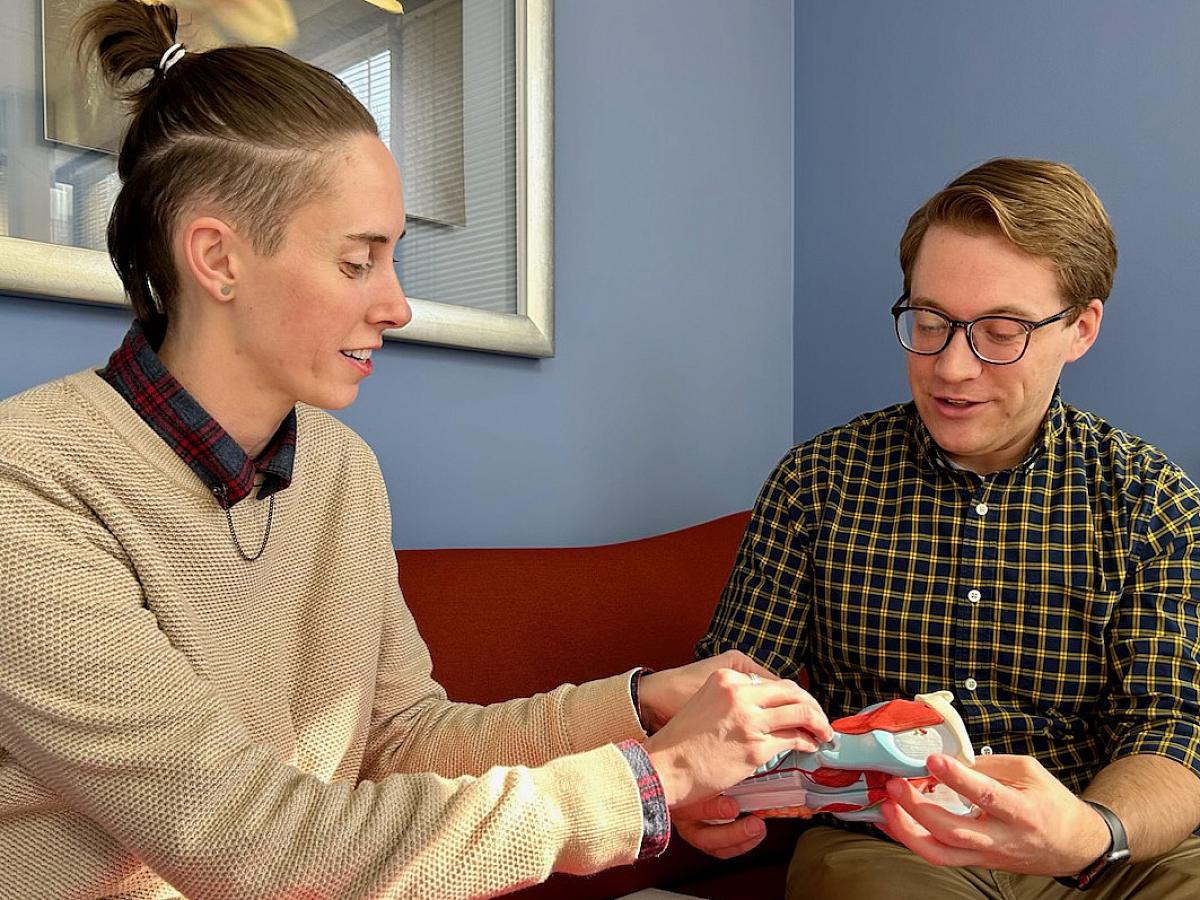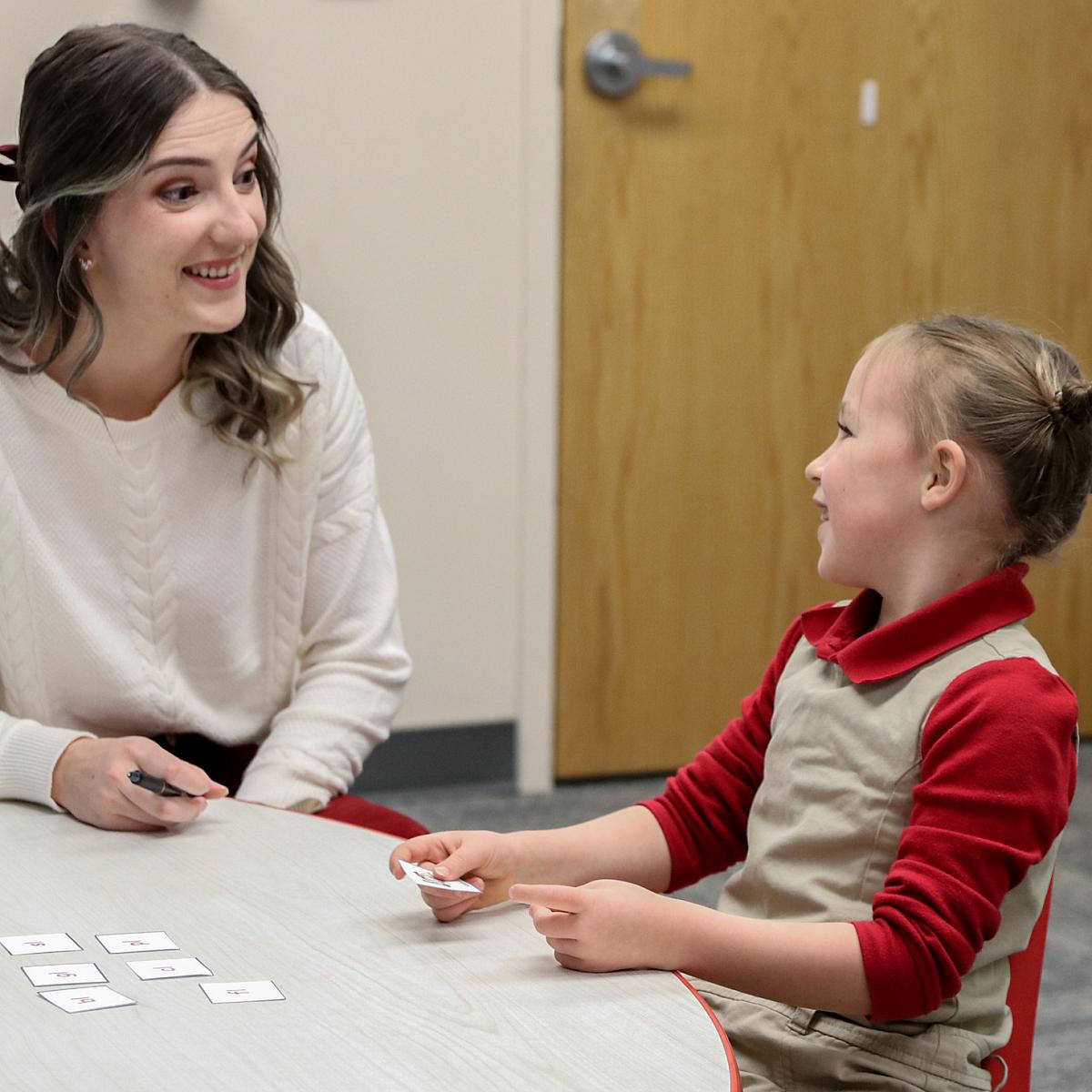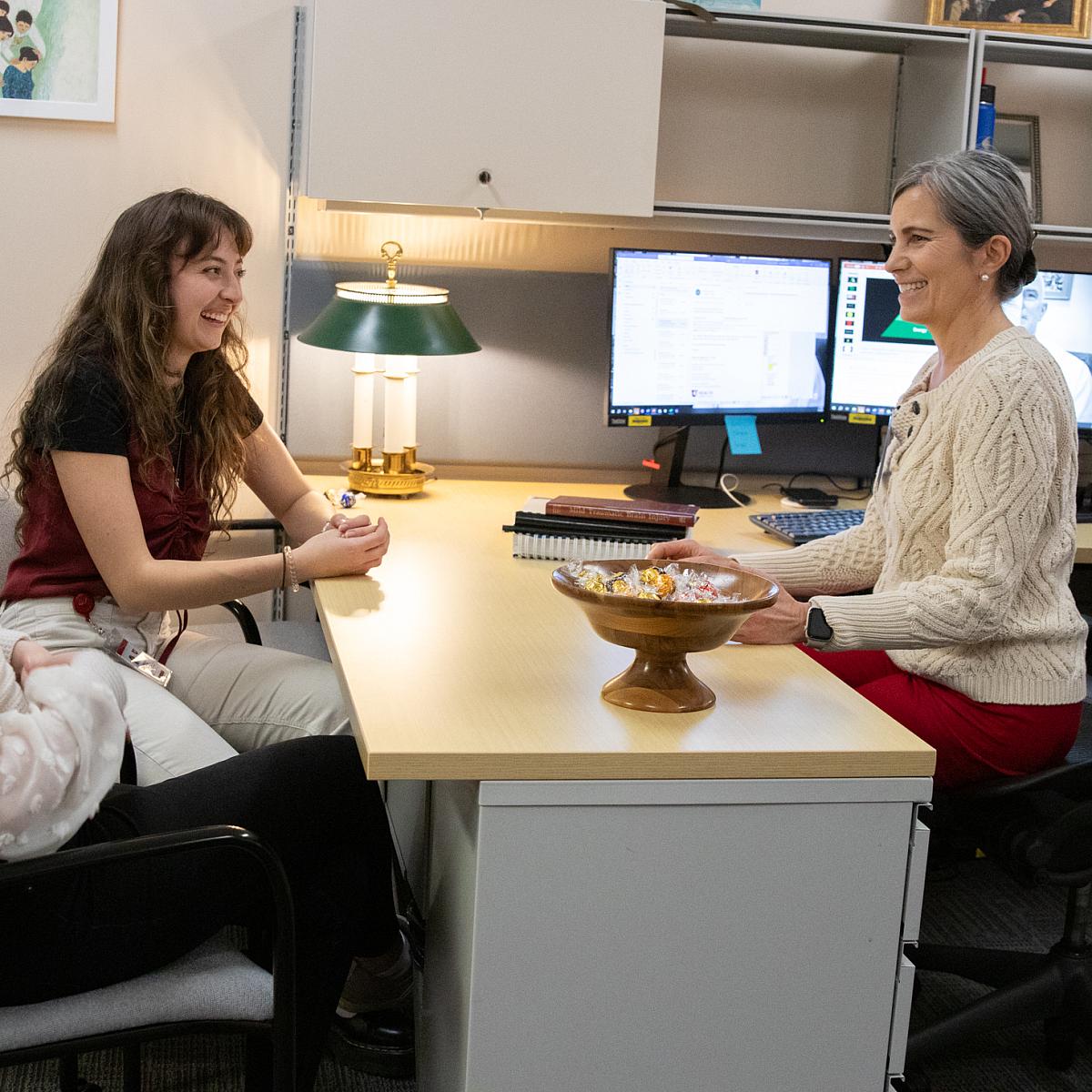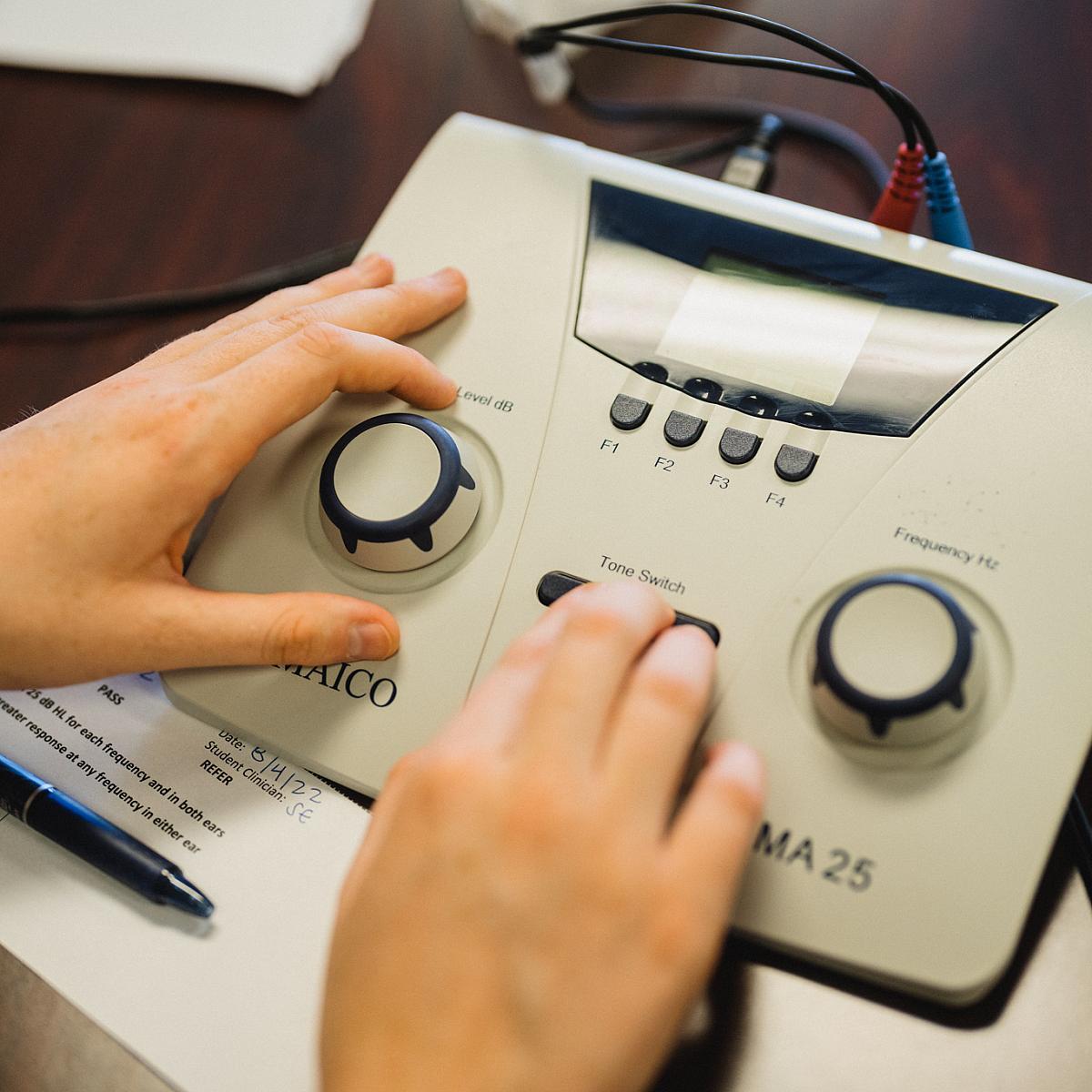
Research and Labs
Communication Sciences and Disorders encompasses a wide variety of research on speech, language, hearing, and neurological communication disorders. Our specialized research labs conduct focused examinations into particular topics within these areas, covering:
- Child Speech Development
- Speech Disorders and Development
- Hearing and Auditory Perception
- Neurological Communication Disorders

Child Speech Development Labs
The Child Speech Development Labs conduct a range of research on various communication development in children, with the goal of better understanding language disorders, improving assessment tools and interventions, and promoting healthy speech and language outcomes for those with or at risk for delays.
Research conducted at the Child Language Laboratories at the University of Utah is directed at increasing our understanding of language development and developmental language disorders. Much of the work focuses on issues of assessment and differential diagnosis but another central concern has been untangling the relationships between language disorders, attention deficits, and socioemotional difficulties.
Contact: Sean Redmond, PhD, CCC-SLP
Our research focuses on the speech and language development of children with cleft palate, development of standard and reliable measures of speech outcome, and determining which surgical and speech interventions result in the best communication outcomes for these children.
Contact: Kathy Chapman, PhD, CCC-SLP, ASHA-F
The Early Childhood Communication Lab focuses on the development of social communication and language in young children. We investigate toddlers’ early language development, with particular emphasis on gestural and linguistic markers in children with developmental delays, including autism and language delay.
Contact: Stacy Manwaring, PhD, CCC-SLP

Speech Disorders and Development Labs

The Speech Disorders and Development Labs research speech production in fluent and stuttering speakers, examining temporal, spectral, and behavioral aspects. These labs evaluate and treat voice issues, while examining factors impacting speech understanding and communication.
The Speech Fluency Lab is equipped with a wide variety of instrumentation to study temporal, spectral, and behavioral aspects of speech production in fluent and stuttering speakers.
Dr. Blomgren’s research interests are broadly focused in two areas:
- Evaluating aspects of speech motor control in stuttering and nonstuttering speakers
- Evaluating outcomes of stuttering treatment.
The Dual-Language Learner (DLL) Lab is dedicated to increasing knowledge when serving DLL’s with and without speech and language disorders. We examine the role of home language support in language development, identify current assessment practices of SLPs, identify facilitators and barriers of interprofessional collaboration, and involve community members in understanding barriers to educational and health access to underserved populations locally and globally.
Contact: Robert Kraemer, PhD, CCC-SLP
The Clinical Voice Studies Lab focuses on the evaluation and treatment of voice and related issues. Located in the University of Utah Speech-Language-Hearing Clinic, our research investigates client-centered evaluation methods and treatment modalities in gender-affirming voice care. We serve on the Transgender Health Program at University of Utah Health to improve quality health care in a trans-affirmative environment. We are also Utah's SPEAK OUT! Therapy and Research Center for individuals diagnosed with Parkinson's disease. As such, we are interested in optimizing treatment techniques for patients with Parkinson's related voice problems.
Contact: Brett Myers, PhD, CCC-SLP
The Speech Acoustics & Perception Laboratory examines talker, listener, and environmental factors associated with successful speech understanding as well as communication breakdowns. Projects range from perceptual experiments where listeners identify or rate what they've heard, to acoustic analyses of previously-recorded speech materials, to speech production studies where participants' speech is recorded across various tasks and test conditions. Our results provide important information to audiologists, speech-language pathologists, and other speech and hearing professionals about how listener hearing status, talker characteristics and behaviors, and environmental conditions all play a part in how we understand speech.
Contact: Sarah Ferguson, PhD, CCC-A
Contact: Nelson Roy, PhD, CCC-SLP, ASHA-F
Hearing and Auditory Perception Labs
The Child Speech Development Labs conduct a range of research on various communication development in children, with the goal of better understanding language disorders, improving assessment tools and interventions, and promoting healthy speech and language outcomes for those with or at risk for delays.
The focus of our lab is on treatment of the acquired neurogenic communication disorders of aphasia and apraxia of speech. Our overriding goal is to design and test clinically applicable treatments for verbal production deficits in persons with aphasia and/or AOS utilizing sound theoretical bases for treatment and rigorous experimental methods. Our recent research efforts have been directed toward optimization of treatments through the examination of the effects of specific therapeutic ingredients (e.g., practice schedule, dosage).
Contact: Julie Wambaugh, PhD
Our long-term research goal is to understand and treat the difficulty hearing loss and aging create for speech comprehension in noise. We establish the relationship between auditory perception and physiology by hypothesizing that declining auditory reflexes with age and hearing loss impair speech perception. We measure middle ear, inner ear, brainstem, and cortical function while participants complete auditory perception tasks. By interpreting the physiological and perceptual results with a computational model, we connect auditory physiology to robust speech perception to improve hearing models, devices, and systems.
Contact: Skyler Jennings, AuD, PhD, CCC-A
The Speech Acoustics & Perception Laboratory examines talker, listener, and environmental factors associated with successful speech understanding as well as communication breakdowns. Projects range from perceptual experiments where listeners identify or rate what they've heard, to acoustic analyses of previously-recorded speech materials, to speech production studies where participants' speech is recorded across various tasks and test conditions. Our results provide important information to audiologists, speech-language pathologists, and other speech and hearing professionals about how listener hearing status, talker characteristics and behaviors, and environmental conditions all play a part in how we understand speech.
Contact: Sarah Ferguson, PhD, CCC-A



